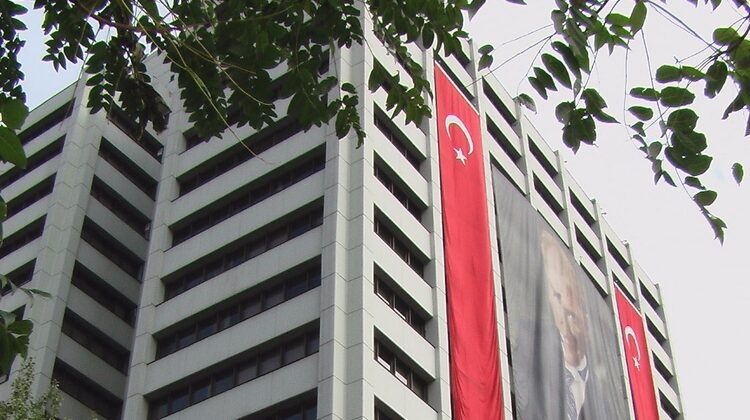

Turkey introduces new rate cuts, as inflation soars
Turkey’s central bank cut its key interest rate for a third consecutive month on Thursday, intensifying an economic policy that has caused a collapse in the country’s currency.
Rate cut follows Erdogan’s demand for single-digit rates
The bank’s monetary policy committee said it cut its benchmark interest rate, , by 1.5 percentage points to 10.5%.
Tweet on new rate cuts in Turkey
Turkey' s lira on a record low!
Turkey’s central bank cut its key interest rate for a third consecutive month on Thursday,intensifying an policy that caused a collapse in the country’s currency.The bank’s committee said it cut its benchmark interest rate,by 1.5% via Bloomberg pic.twitter.com/UAyy4Ci5Mh
— The_Journalbiz (@the_journalbiz) October 21, 2022
Bloomberg:Central Bank announced new rate cuts as inflation soars in Turkey
Turkish President Recep Tayyip Erdogan has pressured the central bank into cutting interest rates even though Turkey is suffering from one of the world’s highest rates of inflation well over 83%.
Central banks throughout the world typically raise interest rates to combat inflation.
Mr. Erdogan says lower interest rates will eventually lead to lower inflation, contrary to the consensus of most economists. Turkish officials also say that they want a weaker currency to support exports and boost the country’s manufacturing base.
Instead, Turkey’s recent interest-rate cuts have caused a turbulent spiral in which foreign investors have scaled back and ordinary Turkish citizens have fled the lira and piled their money into dollars, gold and cryptocurrencies.
The Turkish president fired three central bank governors in two years and removed a series of other senior officials at the bank last year, paving the way for four interest-rate cuts late last year. The lira subsequently lost more than half of its value.
Turkey’s finance minister, Nureddin Nebati, said in an interview in Washington last week that the government was determined to carry out an economic transformation that would remake Turkey as a manufacturing hub.
“We had calculated that this would go through in a lightly painful way,” he said of the government’s economic vision. “What increased the severity of the pain was the war [in Ukraine].”
Mainstream economists say the Turkish government’s approach has been detrimental to manufacturers because the collapsing lira has made it harder for Turkish companies to pay for energy, raw materials, transportation and other costs. The government’s unorthodox policy has also scared off Western investors.








